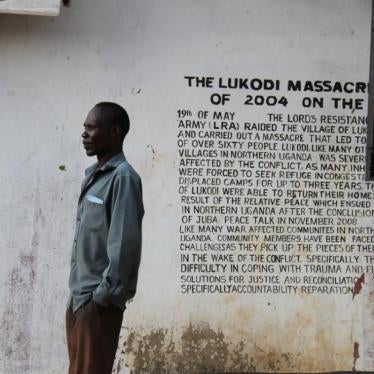At the end of a long critique (The Court of No Resort," op-ed, July 2, 1001), Fred Hiatt correctly counsels the Bush administration to work to shape the soon-to-be created International Criminal Court (ICC) instead of launching a "foolishly counterproductive" campaign against it. The wisdom of that counclusion would be even more apparent had he not repeated so many misconceptions about the ICC along the way.
His fear is that the ICC will function "without any political oversight," except from a rogues' gallery of undemocratic states. "Think U.N. General Assembly; think Sudan and Cuba voting themselves onto the U.N. Human Rights Commission," he writes.
In fact, the ICC will answer to an assembly of member states with the power to remove its judges and prosecutor by a simple vote. Highly abusive governments can indeed join this assembly, but only if they ratify the ICC treaty. And they have an incentive not to ratify. For if they do, they will grant the court jurisdiction over crimes committed on their territory. If not, the court will have such jurisdiction only with U.N. Security Council authorization.
Joining the U.N. Human Rights Commission is unfortunately a risk-free proposition for the Sudans of the world. Joining the ICC would expose their leaders to prosecution. For this reason, countries such as China, Cuba, North Korea, Iraq, Libya, Burma, Pakistan, Saudi Arabia and Vietnam refused to sign the ICC treaty, which is being ratified primarily by democracies. The ICC will include every member of the European Union and almost every major U.S. ally. Despots will be evading it, not employing it.
As for the danger of political prosecutions of Americans, it certainly exists in a world in which many resent America's power. But those targeting the United States are not likely to make the ICC their instrument. The ICC will cover only the most egregious international crimes, defined in ways corresponding closely to the U.S. military code of justice. It will have no independent arrest authority. For alleged crimes on U.S. soil, the ICC will have jurisdiction only if the United States ratifies the treaty, which is unlikely until the court has a track record. If a U.S. service member overseas were accused of a war crime, the ICC would be forbidden to exercise jurisdiction if the United States launched a good-faith investigation, something the United States is committed to do as a matter of policy.
Hiatt claims that even the "potential" vulnerability to prosecution "will discourage the U.S. government from sending troops to places such as Kosovo." Yet the United States has sent thousands of troops to Kosovo, where they are potentially subject to the jurisdiction of the Yugoslav war crimes tribunal.
The Yugoslav court, which Hiatt rightly praises, has worked responsibly with fewer restraints than the ICC and no requirement to respect the decisions of national courts. Ironically, the international tribunal Hiatt likes most is the one least deferential to national sovereignty; the one he likes least -- the ICC -- will be the most deferential.
What about Israel? Hiatt is concerned that Human Rights Watch backs an investigation of Ariel Sharon for massacres in Lebanon, though even he concedes that "it's fair to question Sharon's role." But that investigation is being conducted by a Belgian court. The ICC cannot touch Sharon for events of 19 years ago, because it can prosecute crimes committed only after its creation. Future actions on Israeli or Palestinian territory will be covered only if the ICC treaty is ratified by Israel or by a broadly recognized Palestinian state. That will not happen until after a peace agreement, in which case the likelihood of Israeli military action against Palestinians greatly diminishes.
So how will the ICC be used? The Security Council might someday approve investigations of egregious violators such as Sudan, even if they don't join the court. Thugs, like Liberia's Charles Taylor, may be exposed for atrocities committed on the territory of neighbors who ratify to protect themselves. Democracies such as Mali have ratified the ICC treaty as an insurance against antidemocratic coups.
But the most important feature of the ICC may well be its limitations. It will not be a rogue court. Nor will it be the final answer to the problem of impunity for war crimes. It will represent simply one step down a road the United States should continue to travel with its allies, as Hiatt ultimately suggests: toward a system of justice built not to settle scores, but to affirm the humanity of victims who too often are forgotten.






